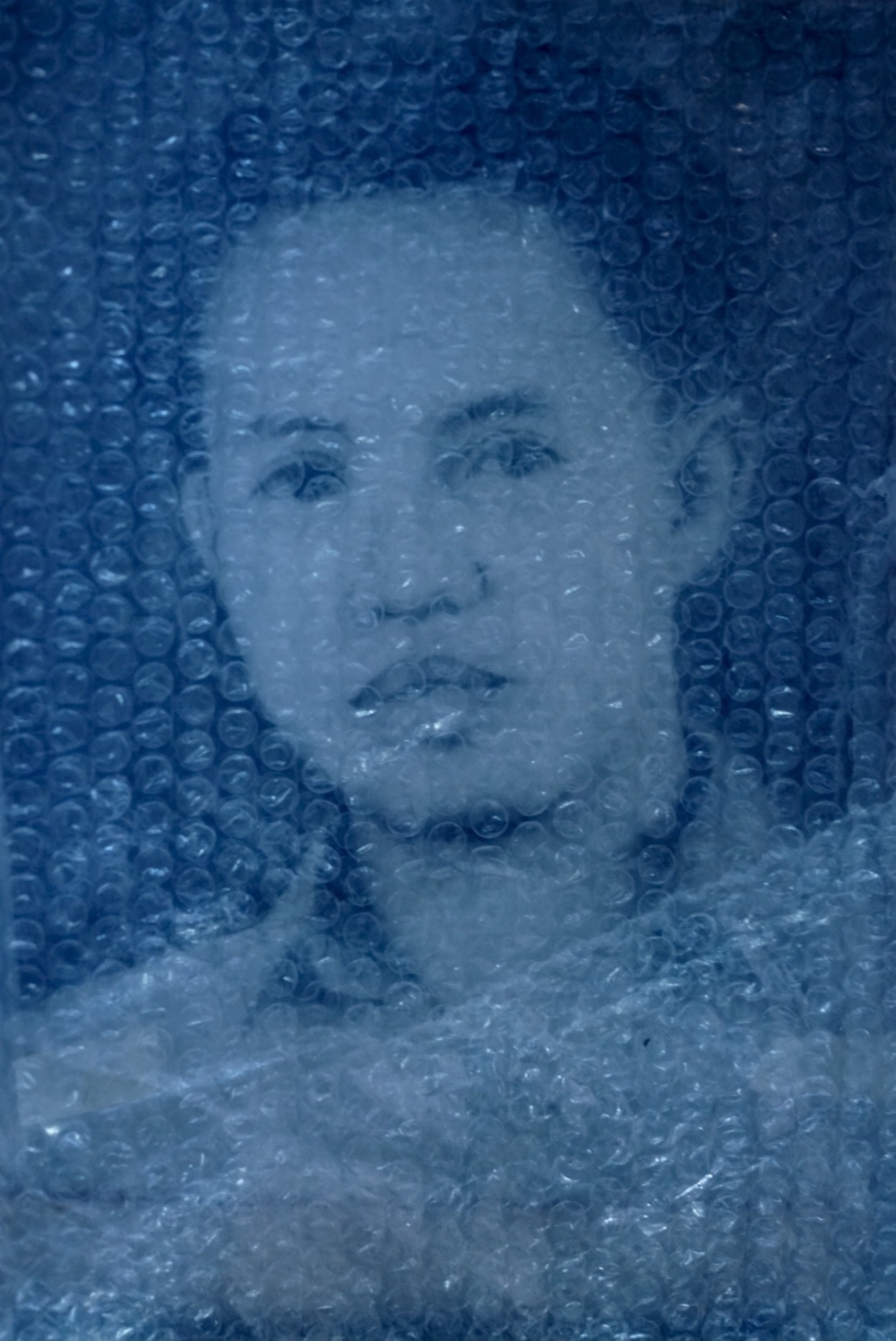Dear 爷爷 (grandpa) ,
I’m taking you back to 南洋 Nanyang (the “southern seas”) tonight.
In early 1949, you were transferred from Taiping detention camp onto a train, and deported by British from the port of Singapore, sailing seven days and seven nights to Swatow/Shantou in southern China. Tonight, I’m taking you from Beijing to Singapore where your two oldest sons now live. We will travel a little more quickly, six hours by Air China. I have bubble-wrapped you and hope you will travel safely with me.
Exactly seven years ago (in January 2011), when I first reconnected with our extended family in our ancestral home of Meixian, Guangdong, after over 60 years of silence, I was so excited I had a charcoal drawing done of you by a local artist I befriended. He used a passport photo of you from your youth and made a handsome life-size drawing in his five-foot-way shop in Meizhou city. I took you — embodied by this drawing — back to our ancestral Hakka house that your father built in the village. You were the respected overseas Chinese intellectual who had been a school principal and newspaper editor in Malaya. When your four sons and daughter returned in June that year for an emotional first-ever visit, they asked for one room in the house of 32 rooms to be cleaned up and your picture hung in honour of your life. You were, after all, the only local 烈士 martyr, since you joined the Chinese Communist guerrilla army after your deportation from Malaya, and months later you were unlucky to be arrested and then executed by Nationalist Kuomintang soldiers passing through those mountains as they retreated towards Taiwan in the dying months of the Chinese Civil War.
I’ve been going to our village and house annually, and seen how over time your portrait has been moved from room to room and then placed above a heap of rubbish in the hallway or with farming equipment and debris as the relatives fought over the property and rooms. Once you were THE martyr that the village school children and civil servants brought flowers to and bowed before every year at Tomb Sweeping Festival. Now, in the realities of today’s China, the descendants of our own family are nonchalant about disrespecting you and your memory. Last August, when I was last there, your children in Singapore and Malaysia decided that I should take this piece of you back with me to Beijing. Your body remains in your tomb and martyr’s monument in our village. I’m sorry to be a bit of a bad granddaughter — my life as a freelancer is a little itinerant and my constant moving into small studio spaces does not provide a good home for you. Also, it is cold here and you, being Hong Kong-born and having spent your whole life in Malaya (save for a few years at high school in Xiamen and university in Shanghai), have always been a southerner. Tonight, I’m taking you back to be with your oldest son.
I am still working to piece together your story, and those of some of your fellow tens of thousands deemed to be leftists and deported or “voluntarily repatriated” by the British during the first years of the Malayan Emergency. It has been seven years since I started, now that I think about it; I fear I have bitten off more than I can chew. I’ve been trying to give you time and do your stories justice, but I’ve come to realise that this sort of project is what scholars spend chunks of their careers researching, studying, writing and presenting. I have not given up; I’m trying to find ways to make it all work, but have been faced with questions of what value society puts on knowledge creation, on the documentation of hidden histories — especially if they are histories from “the wrong side”?
Your “professional bum” of a granddaughter, not born into wealth or social capital, juggles a lot to stay afloat but she is still trying to make this life work.
For now, I have tried to tell a little of the stories of a few of your compatriots, in an exhibition opening next week — that’s why I’m flying back to Singapore, and taking you. They will be on the walls, with their documents and artefacts from that period. Two of them will be singing the tunes familiar to your compatriots, including one which deportees sang, defiantly, amid tears, standing on deck as their ship set sail from Malaya — “Goodbye Malaya” <<告别马来亚>>.
“Beautiful Malaya…
Oh Malaya, Malaya oh…
We will come back, come back…
When the rooster crows at dawn.”
— Chi Yin
Beijing, 14 Jan 2018
